What is a Prime Mortgage?

When navigating the world of home loans, you'll encounter various terms that can seem overwhelming. One of the most important concepts to understand is that of a prime mortgage. At Crescent Title, our attorneys aim to simplify complex financial topics and provide you with the knowledge you need to make informed decisions. Learn with us what prime mortgage is, its benefits, how it compares to other types of mortgages, and what you need to qualify for one.
What is a Prime Mortgage?
A prime mortgage is a home loan that is offered to borrowers who have excellent credit scores, a stable income, and a low debt-to-income ratio. Prime mortgages come with the most favorable terms, including lower interest rates and more flexible repayment options. These loans are considered low-risk for lenders because the borrowers are deemed financially stable and creditworthy.
Characteristics of Prime Mortgages
Prime mortgages typically have the following characteristics:
1) Low Interest Rates: One of the main advantages of prime mortgages is the low interest rates. Since borrowers are considered low-risk, lenders offer more competitive rates compared to subprime or non-prime loans. Lower interest rates mean lower monthly payments and less interest paid over the life of the loan.
2) Fixed and Adjustable Rates: Prime mortgages are available with both fixed and adjustable interest rates. Fixed-rate mortgages have an interest rate that remains constant throughout the life of the loan, providing predictable monthly payments. Adjustable-rate mortgages (ARMs) have an interest rate that can fluctuate based on market conditions, which can be beneficial if interest rates decrease.
3) Flexible Terms: Prime mortgages offer flexible terms, ranging from 10 to 30 years or more. This flexibility allows borrowers to choose a repayment plan that best fits their financial situation and long-term goals.
4) Lower Fees and Costs Borrowers with prime mortgages often benefit from lower fees and closing costs. Lenders are more willing to offer favorable terms to attract and retain creditworthy customers.
4 Benefits of a Prime Mortgage
Prime mortgages provide several key benefits to borrowers:
1) Cost Savings: The lower interest rates associated with prime mortgages result in significant cost savings over the life of the loan. Lower monthly payments make homeownership more affordable and allow borrowers to allocate funds to other financial goals.
2) Predictable Payments: Fixed-rate prime mortgages offer predictable monthly payments, which can simplify budgeting and financial planning. This stability is particularly valuable for homeowners looking for long-term financial security.
3) Greater Approval Odds: Borrowers with strong credit scores and stable financial backgrounds have a higher likelihood of being approved for a prime mortgage. This increased approval odds can reduce the stress and uncertainty often associated with the mortgage application process.
4) Access to Better Loan Options: Prime borrowers have access to a wider range of loan products and programs. Lenders are more likely to offer additional benefits, such as lower down payment requirements and more flexible loan terms, to attract prime borrowers.
Prime Mortgages vs. Subprime Mortgages
It's important to understand how prime mortgages differ from subprime mortgages, which are offered to borrowers with lower credit scores and higher risk profiles.
Interest Rates: Subprime mortgages come with higher interest rates compared to prime mortgages. This reflects the increased risk that lenders take on when lending to borrowers with less favorable credit histories.
Loan Terms: Prime mortgages offer more favorable loan terms, including longer repayment periods and lower fees. Subprime mortgages often have shorter terms, higher fees, and more restrictive conditions.
Credit Requirements: Prime mortgages require higher credit scores, typically above 680. Subprime mortgages are available to borrowers with credit scores below this threshold, often starting at around 580 or lower.
Risk and Default Rates: Subprime mortgages carry a higher risk of default due to the borrowers' weaker credit profiles. This increased risk is mitigated by higher interest rates and stricter lending conditions.
How to Qualify for a Prime Mortgage
Qualifying for a prime mortgage requires demonstrating financial stability and creditworthiness. Here are the key factors lenders consider:
Credit Score: A high credit score is essential for qualifying for a prime mortgage. Aim for a credit score of 680 or higher. To achieve this, pay your bills on time, reduce outstanding debts, and avoid opening new credit accounts unnecessarily.
Stable Income: Lenders look for a stable and sufficient income to ensure you can meet your mortgage payments. Provide documentation of your income, such as pay stubs, tax returns, and employment history.
Debt-to-Income Ratio (DTI): Your debt-to-income ratio is the percentage of your monthly income that goes toward debt payments. Lenders prefer a DTI ratio below 36%, with no more than 28% of your income going toward housing expenses. Lowering your DTI by paying off debts can improve your chances of qualifying for a prime mortgage.
Down Payment: A substantial down payment can enhance your eligibility for a prime mortgage. Aim for at least a 20% down payment to avoid private mortgage insurance (PMI) and to demonstrate financial responsibility.
Employment History: Lenders prefer borrowers with a stable employment history, ideally with the same employer for at least two years. Consistent employment indicates reliable income and financial stability.
Get Prime Results with Crescent Title
A prime mortgage is an excellent option for borrowers with strong credit scores and stable financial backgrounds. The benefits of lower interest rates, flexible terms, and cost savings make prime mortgages an attractive choice for homebuyers. Understanding the requirements and taking steps to improve your financial profile can help you qualify for a prime mortgage and secure the best possible terms.
At Crescent Title, we're committed to helping you navigate the mortgage process and achieve your homeownership goals. Whether you're exploring prime mortgages or need guidance on improving your credit, our experienced team is here to support you every step of the way.
If you have any questions or need assistance with your mortgage or real estate needs, contact Crescent Title today to make informed decisions and achieve financial success through homeownership.

